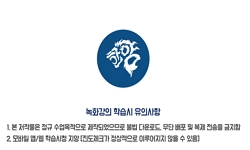아동과 청소년에게 있어 감사는 자족 편향에서 벗어나서 건전한 사회적 통합을 도모하며, 집단과 사회에 기여하는 바람직한 성격 형성에 큰 도움을 준다. 그러므로 학생들의 감사 성향을 함...
http://chineseinput.net/에서 pinyin(병음)방식으로 중국어를 변환할 수 있습니다.
변환된 중국어를 복사하여 사용하시면 됩니다.
- 中文 을 입력하시려면 zhongwen을 입력하시고 space를누르시면됩니다.
- 北京 을 입력하시려면 beijing을 입력하시고 space를 누르시면 됩니다.
https://www.riss.kr/link?id=A102737667
- 저자
- 발행기관
- 학술지명
- 권호사항
-
발행연도
2015
-
작성언어
Korean
-
주제어
감사 ; 감사 성향 ; 긍정심리학 ; 도덕교육 ; 도덕적 정서 ; 안녕 ; gratitude ; grateful disposition ; moral education ; moral emotion ; positive psychology ; well-being
-
KDC
100
-
등재정보
KCI등재
-
자료형태
학술저널
- 발행기관 URL
-
수록면
31-57(27쪽)
-
KCI 피인용횟수
1
- DOI식별코드
- 제공처
-
0
상세조회 -
0
다운로드
부가정보
국문 초록 (Abstract)
아동과 청소년에게 있어 감사는 자족 편향에서 벗어나서 건전한 사회적 통합을 도모하며, 집단과 사회에 기여하는 바람직한 성격 형성에 큰 도움을 준다. 그러므로 학생들의 감사 성향을 함양시켜 주는 것은 도덕교육의 중요한 과제 중의 하나이다. 이에 이 논문에서는 감사의 본질과 효과, 그리고 감사가 안녕을 매개하는 이론적 기제를 살펴본 후에, 도덕교육에서 감사를 가르칠 때 유념해야 할 3가지 기본 원칙을 제안하였다. 도덕교육자로서 우리는 학생들의 감사 성향을 함양하기 위해 학생들과 안전한 애착 관계를 형성하고, 학생들이 체화된 감사 성향을 지닐 수 있도록 통합적인 지도 방안을 수립하여 적용하며, 성 인지적인 교육적 개입 방안을 고려할 수 있어야 한다. 그리고 무엇보다도 가장 중요한 것은 바로 교사가 학생들에게 감사의 역할 모델이 되어야 한다는 것이다.
다국어 초록 (Multilingual Abstract)
Gratitude in children and adolescents is very helpful for overcoming self-sufficient tendencies, pursuing sound social integration, and fostering desirable moral character. Therefore, cultivating students`` grateful disposition is one of the most impo...
Gratitude in children and adolescents is very helpful for overcoming self-sufficient tendencies, pursuing sound social integration, and fostering desirable moral character. Therefore, cultivating students`` grateful disposition is one of the most important tasks of moral education. In this article, I briefly review the nature and effect of gratitude for readers who are not familiar with gratitude research. I then show how gratitude is linked to students`` well-being via four promising theoretical mechanisms such as schematic hypothesis, coping hypothesis, broaden-and-build theory, and amplification theory of gratitude. Finally, I conclude with three basic principles for teaching gratitude in schools. Teachers have to make students form secure attachment to them, implement an integrative teaching methods so that students can show embodied gratitude, and consider gender-sensitive gratitude intervention. This article ends with final recommendation for teachers that teachers should be true role models of gratitude.
참고문헌 (Reference)
1 추병완, "초등학생의 학교 유대감 증진을 위한 감사 연습 방안" 한국도덕윤리과교육학회 (48) : 49-79, 2015
2 "제2 세월호 막자. 인성교육 강화 붐"
3 "교육부, 안전교육 7대 표준안 마련"
4 추병완, "감사의 도덕적 본질과 교육 방안" 한국교육과정평가원 18 (18): 31-59, 2015
5 추병완, "감사 연습의 도덕교육적 의의" 한국초등도덕교육학회 (47) : 29-55, 2015
6 Fredrickson, B. L., "What good are positive emotions in crises? A prospective study of resilience and emotions following the terrorist attacks on the United States on September 11th, 2001" 84 (84): 2003
7 Gordon, A. K., "What are children thankful for? An archival analysis of gratitude before and after the attacks of September 11" 25 (25): 2004
8 Dwiwardani, C., "Virtues develop from a secure base attachment and resilience as predictors of humility, gratitude, and forgiveness" 42 (42): 2014
9 Proctor, C., "Very happy youths: Benefits of very high life satisfaction among adolescents" 98 (98): 2010
10 Fredrickson, B. L., "The psychology of gratitude" Oxfrod University Press 2004
1 추병완, "초등학생의 학교 유대감 증진을 위한 감사 연습 방안" 한국도덕윤리과교육학회 (48) : 49-79, 2015
2 "제2 세월호 막자. 인성교육 강화 붐"
3 "교육부, 안전교육 7대 표준안 마련"
4 추병완, "감사의 도덕적 본질과 교육 방안" 한국교육과정평가원 18 (18): 31-59, 2015
5 추병완, "감사 연습의 도덕교육적 의의" 한국초등도덕교육학회 (47) : 29-55, 2015
6 Fredrickson, B. L., "What good are positive emotions in crises? A prospective study of resilience and emotions following the terrorist attacks on the United States on September 11th, 2001" 84 (84): 2003
7 Gordon, A. K., "What are children thankful for? An archival analysis of gratitude before and after the attacks of September 11" 25 (25): 2004
8 Dwiwardani, C., "Virtues develop from a secure base attachment and resilience as predictors of humility, gratitude, and forgiveness" 42 (42): 2014
9 Proctor, C., "Very happy youths: Benefits of very high life satisfaction among adolescents" 98 (98): 2010
10 Fredrickson, B. L., "The psychology of gratitude" Oxfrod University Press 2004
11 McCullough, M. E., "The grateful disposition: A conceptual and empirical topography" 82 (82): 2002
12 Watkins, P. C., "The Oxford handbook of positive psychology" Oxford University Press 2009
13 Emmons, R. A., "Queen of virtues? Gratitude as a human strength" 32 : 2012
14 Froh, J. J., "Measuring gratitude in youth: Assessing the psychometric properties of adult gratitude scales in children and adolescents" 23 (23): 2011
15 McCullough, M. E., "Is gratitude a moral affect?" 127 (127): 249-266, 2001
16 Emmons, R. A., "Handbook of positive psychology" Oxford University Press 2001
17 Wood, A. M., "Gratitude and well-being: A review and theoretical integration" 30 (30): 2010
18 Watkins, P. C., "Gratitude and the good life: Toward a psychology of appreciation" Springer 2014
19 Froh, J. J., "Gratitude and subjective well-being in early adolescence: Examining gender differences" 32 (32): 2009
20 Kashdan, T. B., "Gender differences in gratitude: Examining appraisals, narratives, the willingness to express emotions, and changes in psychological needs" 77 (77): 2009
21 Wood, A. M., "Coping style as a psychological resource of grateful people" 26 (26): 2007
22 Peterson, C., "Character strengths before and after September 11" 14 (14): 2003
23 Putnam, R. D., "Bowling together: The United State of America" 13 (13): 2002
24 Froh, J. J., "Being grateful is beyond good manners: Gratitude and motivation to contribute to society among early adolescents" 34 : 2010
25 Wood, A. M., "A social-cognitive model of trait and state levels of gratitude" 8 (8): 2008
26 추병완, "A review of gratitude researches in youth: Implications for moral education" 한국윤리학회 1 (1): 45-62, 2015
동일학술지(권/호) 다른 논문
-
윤리의 생물학화: 자연주의적 오류와 반자연주의적 오류를 넘어서
- 한국윤리학회
- 류지한 ( Ji Han Lyou )
- 2015
- KCI등재
-
- 한국윤리학회
- 변종헌 ( Jong Heon Byeon )
- 2015
- KCI등재
-
- 한국윤리학회
- 장승희 ( Seung Hee Jang )
- 2015
- KCI등재
-
고등학생들이 바라본 세월호 사건, 그리고 윤리교육의 반성
- 한국윤리학회
- 도홍찬 ( Hong Chan Do )
- 2015
- KCI등재
분석정보
인용정보 인용지수 설명보기
학술지 이력
| 연월일 | 이력구분 | 이력상세 | 등재구분 |
|---|---|---|---|
| 2026 | 평가예정 | 재인증평가 신청대상 (재인증) | |
| 2020-01-01 | 평가 | 등재학술지 유지 (재인증) |  |
| 2017-01-01 | 평가 | 등재학술지 유지 (계속평가) |  |
| 2014-02-24 | 학회명변경 | 영문명 : The Korean Ethics Studies Association -> The Korean Association of Ethics |  |
| 2014-02-24 | 학술지명변경 | 외국어명 : Journal of Korean Ethics Studies -> Journal of Ethics |  |
| 2013-01-01 | 평가 | 등재학술지 유지 (등재유지) |  |
| 2010-01-01 | 평가 | 등재학술지 유지 (등재유지) |  |
| 2008-01-01 | 평가 | 등재학술지 유지 (등재유지) |  |
| 2006-12-20 | 학회명변경 | 한글명 : 한국국민윤리학회 -> 한국윤리학회 |  |
| 2006-12-20 | 학술지명변경 | 한글명 : 국민윤리연구 -> 윤리연구외국어명 : 미등록 -> Journal of Korean Ethics Studies |  |
| 2005-01-01 | 평가 | 등재학술지 선정 (등재후보2차) |  |
| 2004-01-01 | 평가 | 등재후보 1차 PASS (등재후보1차) |  |
| 2002-01-01 | 평가 | 등재후보학술지 선정 (신규평가) |  |
학술지 인용정보
| 기준연도 | WOS-KCI 통합IF(2년) | KCIF(2년) | KCIF(3년) |
|---|---|---|---|
| 2016 | 0.43 | 0.43 | 0.42 |
| KCIF(4년) | KCIF(5년) | 중심성지수(3년) | 즉시성지수 |
| 0.41 | 0.4 | 0.578 | 0.08 |





 KCI
KCI KISS
KISS






